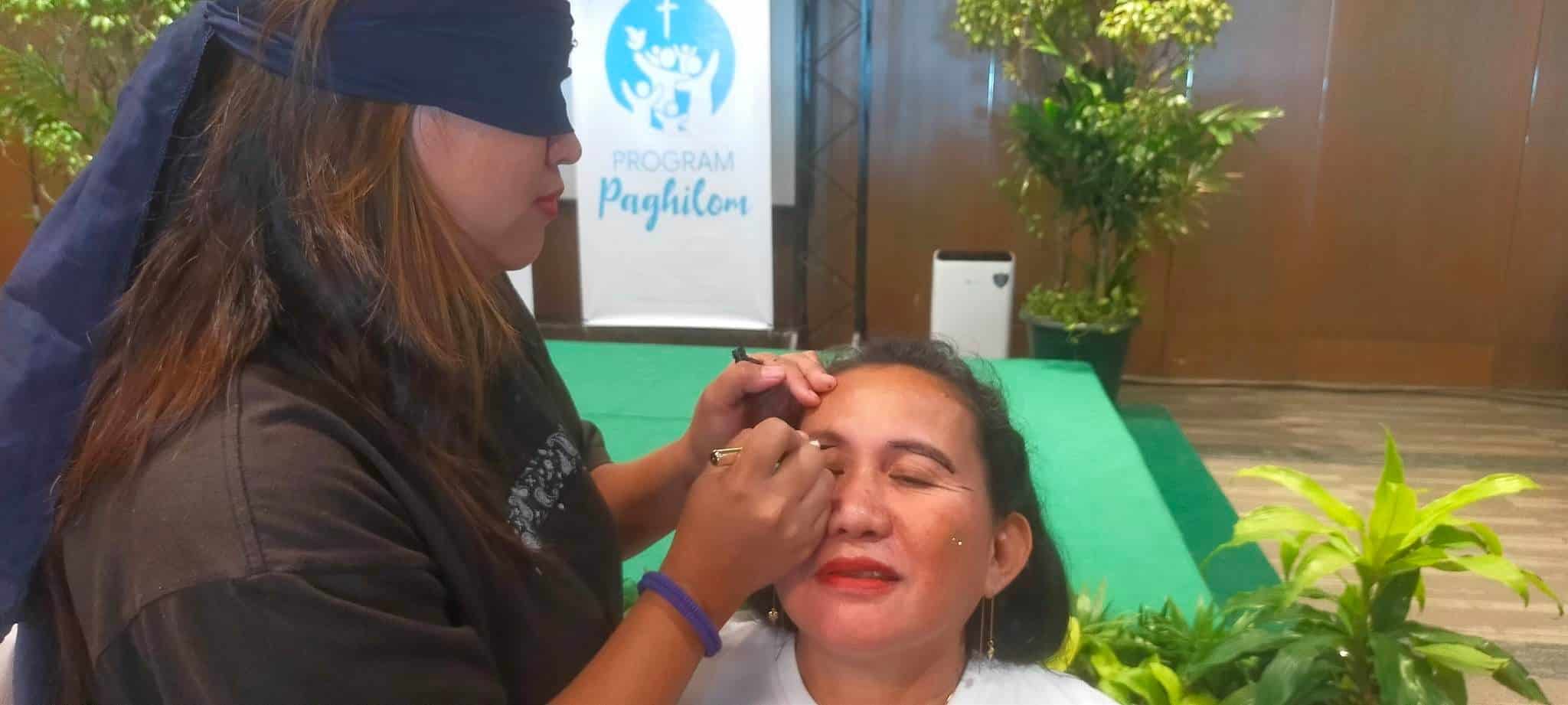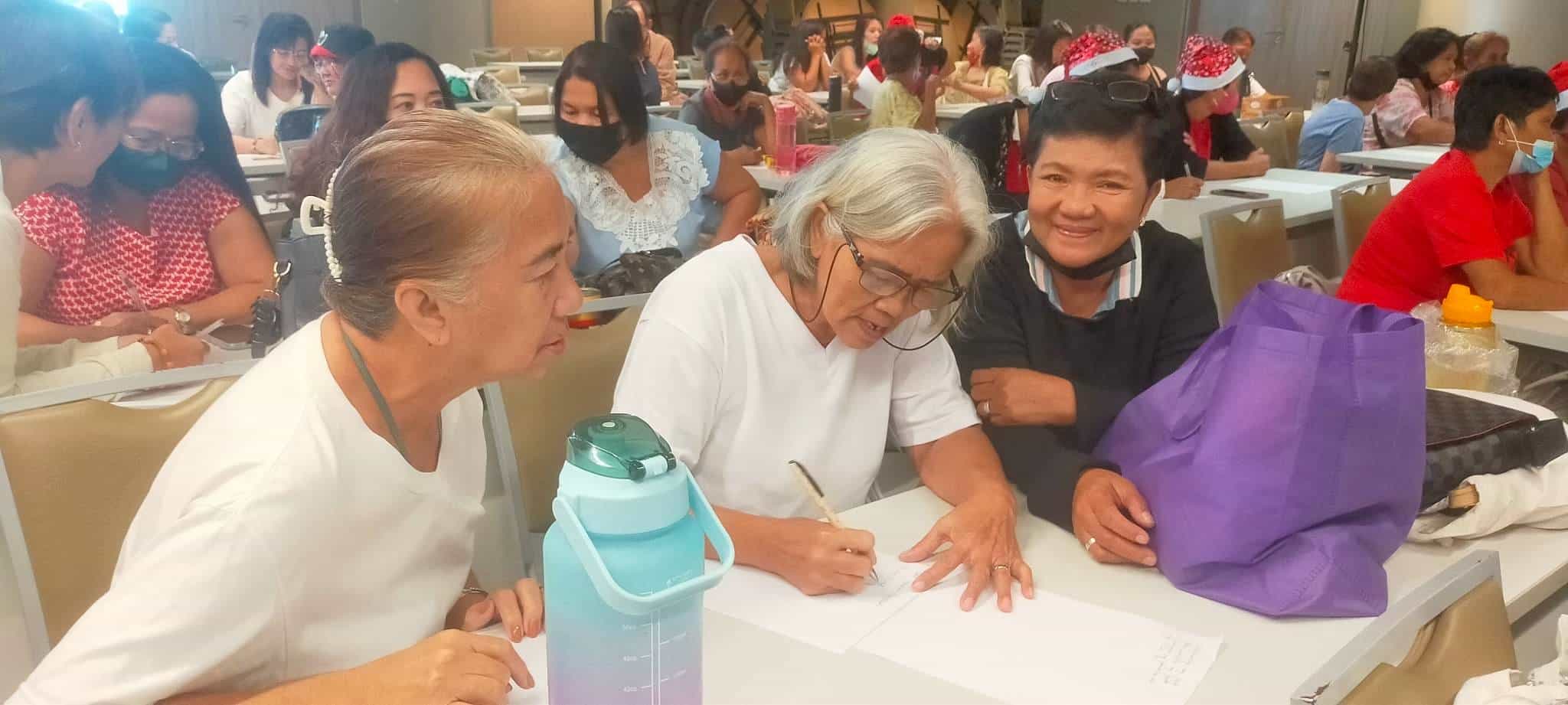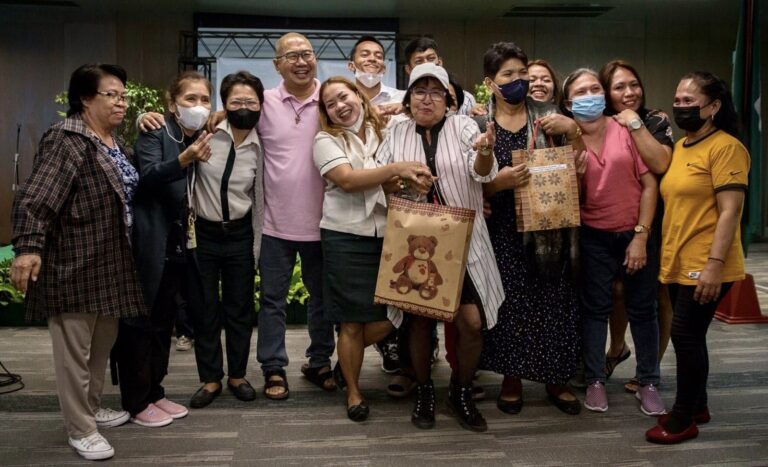By Nirva Delacruz
Many Filipinos are familiar with the issue of extra-judicial killings (EJKs) in the country, one that tragically grabbed the limelight during the Duterte administration’s war on drugs. But few people know that the children of the murdered were bullied for having fathers or brothers tagged—sometimes, falsely—as drug pushers and users.
This is what happened to Mary Grace Garganta in 2017 when father and brother fell victim to the relentless hunt for alleged drug peddlers. Her father and brother’s case made it to the evening news, branding her family forever as a family of undesirables. “All of us siblings stopped going to school because we got bullied. I was so sad and depressed. I didn’t know what to do, where to begin; I felt like a lost kid. I didn’t where to go or if I had anything left to go back to,” shares Gracia in Filipino.
The white handkerchief
For Belina Rosales, whose brother was gunned down by unknown assailants on January 7, 2017, life was divided into “before his death” and “after his death.” “We were all so full of anger, fear, and worry that someone else in the family would die. We didn’t have any peace and were constantly gossiped about and judged by people around us,” she shares in an interview.
It was then that she sensed someone hand her a white handkerchief that had the name “Flavie” embroidered on it. Without thinking, she took the hankie, dried her tears, and felt a hand patting her back. Gracia said she started crying even more at the thought that there was someone willing to listen.
Gracia, whose case galvanized the creation of what would later on be known as Program Paghilom, still remembers the day that would become her turning point and for others who would come after her. “I was at a rally in Tomas Morato. I had been invited to speak, and I was shouting in front with my face covered. The only thing I knew at that time was that I was angry. I was putting up a front while speaking, but after, I started crying, so mad at the world.”
It was then that she sensed someone hand her a white handkerchief that had the name “Flavie” embroidered on it. Without thinking, she took the hankie, dried her tears, and felt a hand patting her back. Gracia said she started crying even more at the thought that there was someone willing to listen. The gentleman, who still believed in carrying around white handkerchiefs, turned out to be an SVD priest: Fr. Flavie Villanueva. Fr. Flavie would eventually take Gracia and another EJK victim, Mary Ann, under his wing, giving them a support system that before then had hardly existed for EJK survivors. These two women would be “first-borns” of the program that would later on be called “Program Paghilom.”
To empower is to heal
What does it take for traumatized, shattered individuals to heal and be nurtured all the way to empowerment? All it takes is the length and diameter of a human heart.

Slowly, through psycho-spiritual interventions, formation, educational and financial support, advocacy training, theater exposure, the widows and mothers of Paghilom are discovering that life can be even better after tragedy. “I’ve changed so much [since joining Paghilom], especially when it comes to relating to others. I learned to mingle with all kinds of people and have learned how to be more understanding of other people’s shortcomings,” adds nanay Belina, who also said she learned more about human rights, etiquette, and good communication through trainings with partners like the legal advocacy group, IDEALS.
For 30-year old Gracia, who has since gone back to school, the chances given by Paghilom to learn and expand her perspectives are themselves empowering. “I have more confidence now in speaking because somehow through the sessions that I attend, I learn a lot,” the young mom adds. She also notes how her old self has resurfaced: the bubbly, chatty, and playful Gracia, who has learned to let her hair down through theater.
Healing together
Today, Program Paghilom cares for 283 EJK families, providing a dependable network of support and security for people who have been pushed close to their breaking point. Belina shares: “In them (Paghilom members), I see love and acceptance of who I am. They are the ones who restored my belief in myself. And they are also the reason why my perspective on the tragic events in our life has changed.”

Finding their voice, more and more EJK widows are taking their stand as human rights advocates in the community. Ultimately, what bonds the Paghilom family isn’t just a shared sense of injustice but a common mission. “The reason why I stay on in Paghilom is because we have the same goal, to work towards justice and to fight for life.” ∎

